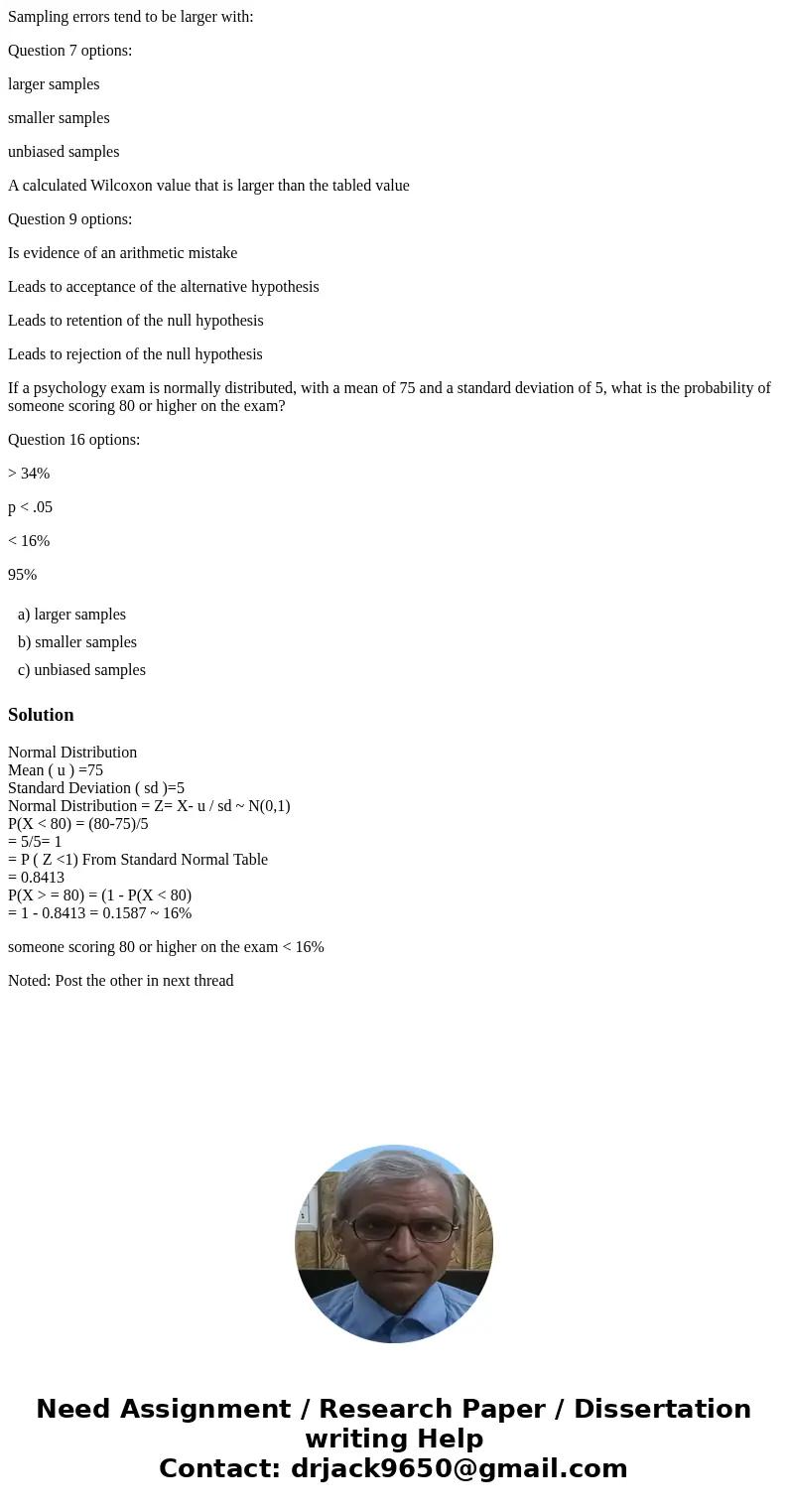Sampling errors tend to be larger with Question 7 options la
Sampling errors tend to be larger with:
Question 7 options:
larger samples
smaller samples
unbiased samples
A calculated Wilcoxon value that is larger than the tabled value
Question 9 options:
Is evidence of an arithmetic mistake
Leads to acceptance of the alternative hypothesis
Leads to retention of the null hypothesis
Leads to rejection of the null hypothesis
If a psychology exam is normally distributed, with a mean of 75 and a standard deviation of 5, what is the probability of someone scoring 80 or higher on the exam?
Question 16 options:
> 34%
p < .05
< 16%
95%
| |||
| |||
|
Solution
Normal Distribution
Mean ( u ) =75
Standard Deviation ( sd )=5
Normal Distribution = Z= X- u / sd ~ N(0,1)
P(X < 80) = (80-75)/5
= 5/5= 1
= P ( Z <1) From Standard Normal Table
= 0.8413
P(X > = 80) = (1 - P(X < 80)
= 1 - 0.8413 = 0.1587 ~ 16%
someone scoring 80 or higher on the exam < 16%
Noted: Post the other in next thread

 Homework Sourse
Homework Sourse